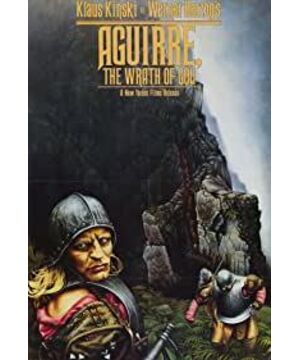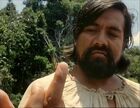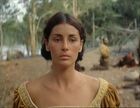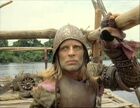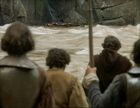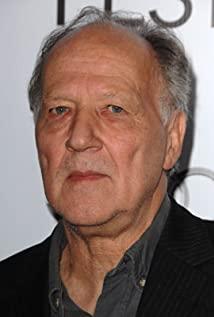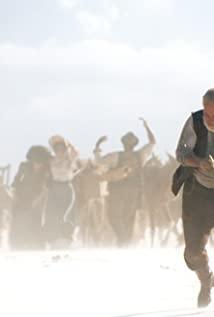2018.5.17
Written on the front: This is a very different film I watched recently. On the one hand, it is set in more than 1500 years. On the other hand, although it does not have a rich plot structure, it is also surprisingly good-looking.
"I am the wrath of God"
At first I saw Aguirre only as an adventurer who coveted gold treasures, but later I discovered he was more than that.
He turned his back on everything.
Bosses, nobles, royal families - they don't care at all, overthrow, kill.
Not to mention commoners or slaves.
The law - it was also made by him.
Animals, the earth, nature—all obey him, submit to him.
So what about God? He has been calling himself "the wrath of God", does that mean he is subordinate to God?
The answer is obviously no. Because he sees himself as the sovereign manipulator, the ruler of the world, a force of rage that can destroy everything. It should be noted that this is not only a self-positioning, but also with turbulent emotions.
So I say that Aguirre is far more than a mere gold seeker.
Aguirre continues on this dangerous and deadly quest for gold. Lack of resources, many enemies, all conditions are unfavorable, the leader of the team said early on that he must return.
Why does Aguirre keep going? Until he and a group of wild monkeys were left on the drifting raft.
Aguirre's own explanation in the film is that the people who occupied Mexico at the time did just that.
The priest said that Aguirre deliberately brought them together to destruction.
I also prefer to think that Aguirre is deliberately leading them to their demise.
First of all, Aguirre is disdainful of people and human life, so life and death have no impact on him.
Secondly, he regarded the death of these low-level people as purification, sacrifice and even inevitable, after all, only him and a group of monkeys were left.
In addition, Aguirre's purpose was never to find treasure with this group of people. In the end, he finally expressed his ambition: to rule this continent, marry his daughter, and establish the most pure-blooded dynasty.
Suddenly want to talk about the primeval forest. Aguir's group of people has been walking and drifting in a virgin forest.
On the one hand, this kind of virgin forest will have a sense of shrouding and deterrence by the powerful force of nature, which will make people lose their beliefs, and on the other hand, it will stimulate the most primitive wildness and desire in the hearts of powerful people.
religion
In this film, religion is deconstructed into pieces.
Not only from Aguirre's point of view, but also from the point of view of missionaries and believers.
In the beginning, there were still devout believers.
Hoping to bring back the dead body for burial, but the next body was blown away.
Ask the missionary for help, but the missionary's answer is "The church is always on the side of the strong."
These believers have nothing to do but pray and say "God will punish you".
The missionary is the brightest and most ironic figure in it.
As the messenger of God, he himself does not believe that God will save mankind, but pursues money generously and relies on power—deconstructing the God he represents with his own hands.
woman
The two women in this film are the more polished and holy beings among a group of disgraced men. From the very beginning, their appearance in a sedan chair on the steep mountain road shaped their image. Especially the commander's wife.
She tried to get help for her husband, but failed. After her husband was overthrown and murdered, she didn't have any drastic reaction, but sat silently as if waiting for her husband to come back. Until the raft landed, she walked into the virgin forest without hesitation, walked to the hideout of the terrible Indian enemy, and finally disappeared into the forest as if out of thin air.
This is the only choice and resistance she can make. A noble woman betrays her colleagues and chooses to enter the virgin forest, which is full of fables. She rebelled against not only Aguirre's power, but also the society she lived in.
animal
It's funny and cute in this film, but it's also puzzling to me that there are lots and lots of scenes of animals that don't have much of a narrative role.
Including the horse that was pushed off the raft and ran into the primeval forest.
These animals are all natural and primitive, adding a lot of pleasant and beautiful elements to the film, especially in the midst of killing and death. Does this imply the purity of nature's primordial power compared to us humans.
Or I don’t know if the author wants to remind that on this continent, in addition to the existence of our human beings, there are also their existence. Or more of the existence of these animals, they these forests, rather than us humans.
View more about Aguirre, the Wrath of God reviews


